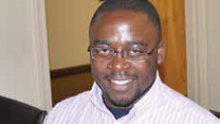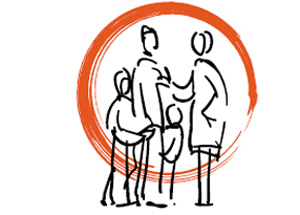leaders

The book of Jeremiah straddles the most momentous event of Israel’s history: the destruction of Jerusalem and its temple and the exile of its leaders to Babylon (586 B.C.E.). In the first half of the book of Jeremiah, the prophet announces that God is furious with the people of Judah, in particular its leaders, because they have reneged on the covenant they made with God through Moses. They have not taken care of the poor, and they have not lived according to the stringent demands to worship God alone.
Not surprisingly, the leaders do not want to hear Jeremiah’s critiques of their ways of doing business. No politician wants to look weak – even before a god. According to Jeremiah, the leaders of Judah have prioritized – not the building of an ethical community – but their own comfort and position. Their desire to maintain their own power and influence has trumped everything. And these politicians have justified their behavior so many times and in so many ways, they don’t even recognize how far they have fallen from the ideal that guided the building of the nation.

Bio: Executive Director, Padare/Enkundleni Men's Forum on Gender in Harare, Zimbabwe — www.padare.org.zw
1. How are women working for gender equality in Zimbabwe? We have a very strong women’s movement in Zimbabwe. We have the Women and AIDS Support Network. We have the Campaign for Female Education, an organization doing wonderful work giving grants to girls so that they stay in school. We have another organization that deals with violence against women; there are no government-provided shelters for battered women in Zimbabwe. There are organizations for young women, for women in rural communities—I could go on and on.
2. “Padare” and “Enkundleni” mean “meeting place” in Zimbabwe’s Shona and Ndebele languages. What does Padare work to do? We are not bringing a new agenda to the table; we are saying, let’s look at all of these women’s organizations and the issues they’re bringing—violence against women, access to education, access to reproductive health, HIV and AIDS. What can men do? Perpetrators of violence against women are men. Men can make a personal commitment of not being violent against their partners. That’s a political statement, but from a very personal perspective. So the feminist slogan that “the personal is political” is equally applicable to men.
One of the drawbacks intrinsic to liturgical worship is the length of time it takes to adopt expressions that are newly current and potent into the approved forms. Certain forms of language become deeply important to a generation—key words and symbols that are pregnant with meaning, yet haven’t been incorporated officially into our forms of worship. So we often feel a certain dissonance in church as the language of worship seems impoverished by the absence of expressions we value so highly in our own exploration into God today. I long for prayers that express, directly and passionately, that God suffers. I look forward to praising God’s vulnerability. I am impatient for the recasting of prayer to praise the Creator in terms that unequivocally embrace the evolutionary perspective. In the meantime, preaching is the key field for using this fresh language with passion, in an exciting conversation with ancient expressions and classic symbols that can never become out of date, as long as we use our imaginations to keep on releasing their latent powers.
The scriptures in this season provide rich opportunities for exploring great images of God’s transforming power in vulnerability. Has anyone coined the word “paradoxology” yet to express the essence of transformative Christian worship? Only paradoxical language can point with any degree of success to the mystery of God and the revelatory revolution that springs into life out of the action of Jesus, the passion of Jesus, and the resurrection of Jesus.
The new movement called Occupy Wall Street now has spread across the country, from the very seats of our political and financial power and our largest cities, to suburbs and small towns. In some communities small groups of a few dozen have formed and in some cities thousands have gathered.
In each instance, no matter the size, people's frustrations, hurt and feelings of being betrayed by our nation's politicians and economic leaders are clear and they want to be heard.
We will likely see images and hear things that will offend us and some that will inspire.
We'll hear demands that we agree with and some that we don't.
And that's OK.
Sojourners has always tried to understand and advocate for "biblical politics." But what does that mean now, especially as we approach another major election?
I was talking the other day to a Christian leader who has given his life to working with the poor. His approach is very grassroots -- he lives in a poor, virtually all-minority community and provides basic services for low-income people. He said, "If you work with and for the poor, you inevitably run into injustice." In other words, poverty isn't caused by accident. There are unjust systems and structures that create and perpetuate poverty and human suffering. And service alone is never enough; working to change both the attitudes and institutional arrangements that cause poverty is required.
It was over in less than a minute. Three miles below the surface of the earth near a town in Virginia called Mineral, a fault line shifted. As a result, a 5.8 magnitude earthquake was felt from Georgia to New England and as far west as Detroit. The National Cathedral lost several stone spires, the Washington Monument cracked, and Sojourners' office was closed for the afternoon, as our building was checked for structural damage.
Tectonic plates move beneath our feet in the part of the globe that scientists refer to as the lithosphere. Over the course of a year, an average plate will move as little as 3 to 6 centimeters. The speed of their movement is 10,000 times slower than the hour hand on a clock and even slower than the rate of growth of human hair. For decades, sometimes centuries or millennia, a plate's movement might go almost entirely unnoticed. Then, in less than a minute, the world shakes and everything changes.
In Galatians 5:19-20, Paul lists the "works of the flesh," contrasting them to the "fruit of the Spirit" immediately thereafter (Gal. 5:22-23). Among the works of the flesh are hostility, quarreling, jealousy, outbursts of anger, selfish ambition, dissension, and division. Another translation puts it, "People become enemies and they fight; they become jealous, angry, and ambitious. They separate into parties and groups ... I warn you now as I have before: those who do these things will not possess the kingdom of God."
 Whenever I give talks on the effects of the Israeli occupation on Palestinian livelihood, the status of nonviolence as a means to resisting the occupation, and how I believe nonviolence is the only way to move forward to resolve the conflict and create a lasting peace between Israelis and Palestinians, one of the first and immediate questions I get from foreign visitors to my office in Bethlehem is, What you said is good, but what about the Muslims? Do they also believe in nonviolence? Do they understand it?" Even if I don't mention religion in my presentation -- and I rarely do -- this question always seems to make its way in our discussions.
Whenever I give talks on the effects of the Israeli occupation on Palestinian livelihood, the status of nonviolence as a means to resisting the occupation, and how I believe nonviolence is the only way to move forward to resolve the conflict and create a lasting peace between Israelis and Palestinians, one of the first and immediate questions I get from foreign visitors to my office in Bethlehem is, What you said is good, but what about the Muslims? Do they also believe in nonviolence? Do they understand it?" Even if I don't mention religion in my presentation -- and I rarely do -- this question always seems to make its way in our discussions.
Today, "Values and Capitalism," a project of the American Enterprise Institute, sponsored a full-page ad in Politico (see page 13) in response to the Circle of Protection. While it is encouraging to see another full-page ad urging our nation's legislators to be concerned about the poor, it is unfortunate that the critique of the Circle of Protection and Sojourners work is based on an error.
I prefer my revolutions to be simple: A corrupt dictator/tyrant, an oppressed population, inspired reformers who risk their lives, calls for democracy, waves of marchers in the streets, background music from Les Misérables. The stories from Tunis and Cairo were epochal. The Arab spring was in full bloom as calls for participatory government could be heard from every corner of the Middle East.
Then there was Syria. The Assad government has been infamous in its intolerance to dissent. It is a military regime whose 30-year leadership under Hafez al-Assad (1930-2000) established it as one of the most severe in the region. In 2,000, after the death of Hafez, the world was intrigued to see his second son -- Bashar al-Assad -- ascend the throne. Bashar was an ophthalmologist who had studied in London, but because of his older brother's death in a car accident in 1994, he was called to follow his father. Bashar speaks English and French fluently and has been as critical of the U.S. as he has been of Israel.
 Several weeks ago (right before I left for my sabbatical), I joined with six other pastors from around the country -- in partnership with Sojourners -- to draft an open letter to Congress and President Barack Obama regarding the budget and the proposals to cut certain programs that aid the poor in our country. Our hope was to invite at least 1,000 pastors to join us in signing this document.
Several weeks ago (right before I left for my sabbatical), I joined with six other pastors from around the country -- in partnership with Sojourners -- to draft an open letter to Congress and President Barack Obama regarding the budget and the proposals to cut certain programs that aid the poor in our country. Our hope was to invite at least 1,000 pastors to join us in signing this document.
As of today, we've had nearly 5,000 pastors and Christian leaders from all 50 states join us in signing this open letter, and we hope to keep adding voices and signatures. As a pastor and Christian leader will you add your voice to let our political leaders know that you stand with the poor?
Read the letter below and if you resonate with our message, please sign your name.

You don't need a ton of proof to know that more and more churches are struggling to survive. It seems churches that are in this predicament have one of two options: revive or die. There are a lot of books, seminars, and workshops given on how to go about reviving a church. However, there is not one cookie cutter, full-proof, and effective strategy in reviving a church. Having said that, it doesn't mean that it is impossible. There are many examples of struggling churches that have successfully revived the congregation, increased the health of the church, and expanded their ministry.
I was not one of the 1,500 who attended the inaugural Wild Goose Festival in Shakori Hills, North Carolina last month, but I did grow up going to Christian summer camp. What’s the connection, you ask, between a festival and summer camp? Summer camp -- like festivals and extended retreats -- is often deeply formative because it gives kids (and adult counselors, for that matter) a glimpse at a kingdom lifestyle.
We cannot allow the history of a brutal genocide to repeat itself in Sudan, nor denial and inaction to repeat itself in Washington, D.C., but both are happening at this very moment
We are looking for 1,000 pastors to debunk a myth based on the political assertion that government doesn't have any responsibility to poor people. The myth is that churches and charities alone could take care of the problems of poverty -- especially if we slashed people's taxes. Both this assertion and myth contradict the biblical imperative to hold societies and rulers responsible for how they treat the poor, and ignore the Christian tradition of holding governments accountable to those in need. Faith-based organizations and government have had effective and healthy partnerships, and ultimately, the assertion and myth have more to do with libertarian political ideology, than good theology.